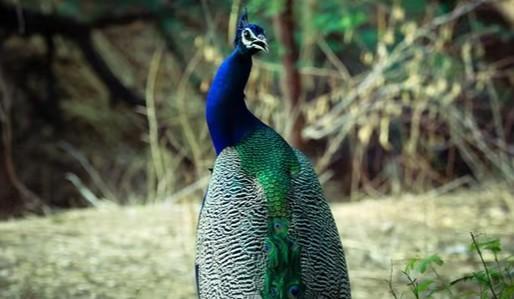
After tigress, cubs & monkeys, 20 peacocks die in K’taka: Report
Karnataka has been witnessing a series of mysterious deaths of wildlife in recent weeks. Following the deaths of a tigress and her four cubs, as well as several monkeys, a new report has emerged of 20 peacocks that have died in the state. The incident has sparked concerns among wildlife enthusiasts and officials, who are working to determine the cause of the deaths.
The latest incident took place in Hanumanthapura village, where 20 peacocks were discovered dead on farmland. The carcasses were sent for examination to determine the cause of death, but officials have yet to release any information on the results of the autopsy.
The news comes just days after the Karnataka forest minister, Eshwar Khandre, ordered an investigation into the “unnatural death” of a tigress and her four cubs in Male Mahadeshwara Hills. The tigress and her cubs were found dead in their den, sparking widespread concern and outrage among wildlife enthusiasts.
The deaths of the monkeys, which were also reported in the same region, have added to the growing sense of unease among wildlife experts. The monkeys were found dead in a forest area, and officials are still trying to determine the cause of their deaths.
While the exact cause of the deaths of the peacocks, tigress and her cubs, and monkeys is still unknown, officials have ruled out poaching as the primary cause. In each of the cases, the animals were found dead in their natural habitats, with no signs of injury or struggle.
The series of deaths has raised concerns about the health and well-being of wildlife in Karnataka. The state is home to a wide range of species, including elephants, tigers, leopards, and bears, and the deaths of these animals are a cause for concern.
Wildlife experts have pointed out that the deaths may be linked to a combination of factors, including habitat destruction, pollution, and human-wildlife conflict. Habitat destruction and fragmentation can leave animals vulnerable to disease and other threats, while pollution can have devastating effects on their health.
Human-wildlife conflict is also a major issue in Karnataka, where many animals are forced to venture into human-dominated areas in search of food and shelter. This can lead to conflicts with humans, which can result in the death of both humans and animals.
The Karnataka government has launched an investigation into the deaths of the animals, and officials are working to determine the cause of their deaths. In the meantime, wildlife enthusiasts and conservationists are calling for increased efforts to protect and conserve wildlife in the state.
The deaths of the peacocks, tigress and her cubs, and monkeys are a stark reminder of the importance of protecting and conserving wildlife. These animals are an integral part of the ecosystem, and their deaths can have far-reaching consequences for the environment and human communities.
As the investigation into the deaths continues, wildlife enthusiasts and conservationists are urging the Karnataka government to take action to protect and conserve wildlife in the state. This includes increasing efforts to protect habitats, reducing pollution, and addressing human-wildlife conflict.
It is only through these efforts that we can ensure the long-term survival of wildlife in Karnataka and protect the state’s rich biodiversity.






